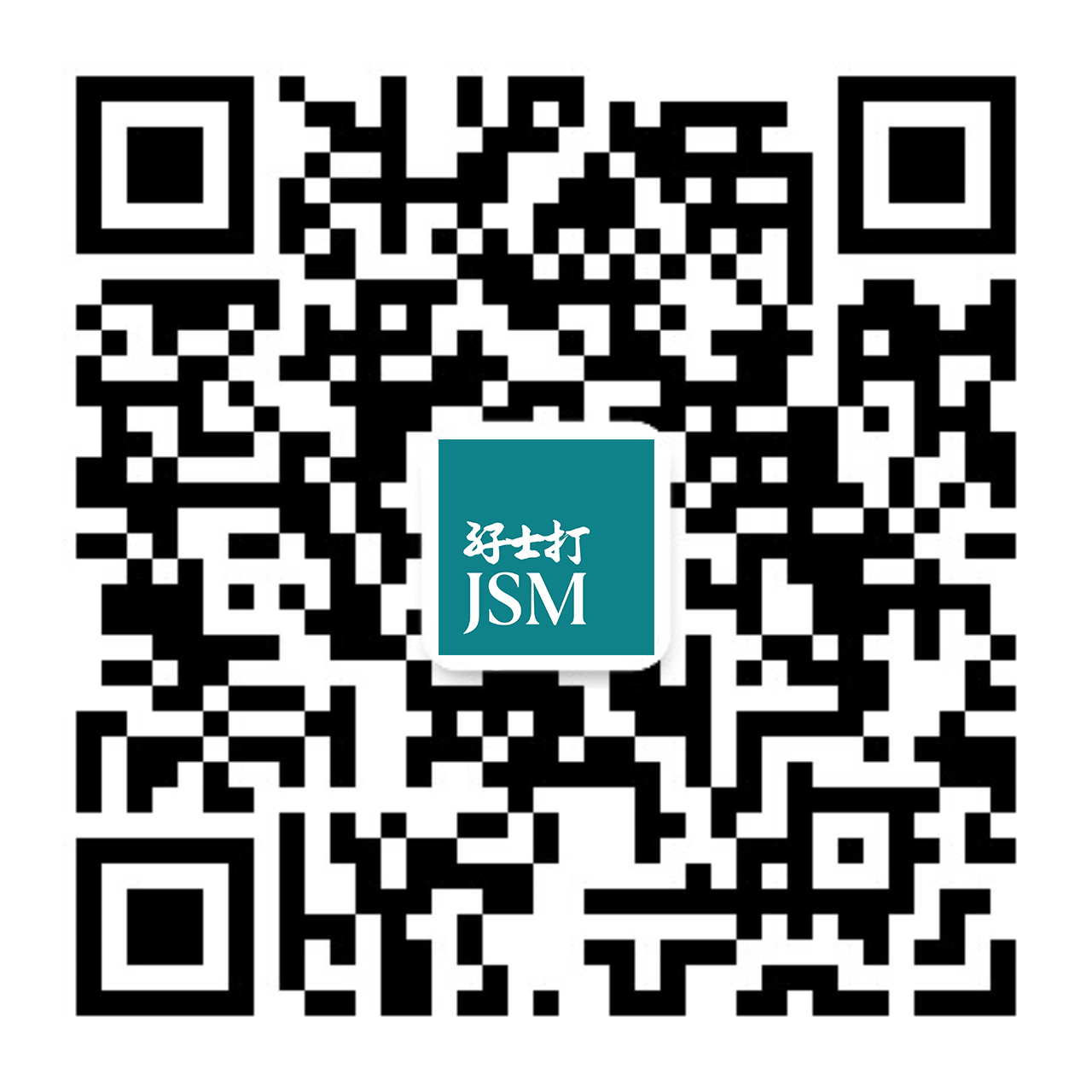孖士打简介
扎根本土,
放眼全球。
孖士打已历经160年的发展。本所的发展历程展示的正是香港人民闻名于世的精神——坚韧不拔、追求卓越。凭借这一精神,香港从中国南部一个小小的省级边陲港口,发展成为今天全球领先的金融和法律中心。
时移世易,本所亦随之而变——始终积极主动地为本所客户、社区以及本所员工在未知领域中探寻最佳路径。

孖士打已历经160年的发展。本所的发展历程展示的正是香港人民闻名于世的精神——坚韧不拔、追求卓越。凭借这一精神,香港从中国南部一个小小的省级边陲港口,发展成为今天全球领先的金融和法律中心。
时移世易,本所亦随之而变——始终积极主动地为本所客户、社区以及本所员工在未知领域中探寻最佳路径。
专业见解
最新出版

We are delighted to present the second issue of the Tanglau International Arbitration newsletter, continuing our commitment to delivering timely insights into key developments shaping the arbitration landscape in Hong Kong, Mainland China, and beyond.
This edition covers the period from April to June 2025, spotlighting recent judgments from Hong Kong, Mainland China, Singapore and the UK that underscore evolving judicial attitudes toward granting injunction and interim reliefs, setting aside arbitral awards on natural justice and determining what constitutes apparent bias.
In addition to case law analysis, this issue reflects on industry trends and legislative updates. Whether you are a seasoned practitioner or new to the field, we hope this newsletter continues to be your go-to resource for arbitration news and perspectives.
Notable Hong Kong cases | Mainland arbitration updates | Overseas jurisdictions observations
Hong Kong court continues worldwide Mareva injunction and grants interim receivership for enforcing arbitral awards
周惠明 (Zhou Hui Ming) v 挪信新能源科技 (南通) 有限公司 (Noxin) & Anor [2025] HKCFI 1503
29 April 2025
Summary: The applicant previously secured from the Hong Kong Court of First Instance (HKCFI) (i) leave to enforce four Shanghai Arbitration Commission arbitral awards, (ii) a worldwide Mareva injunction freezing assets of the respondents and a third party (Sun’s Parties); and (iii) disclosure orders requiring the Sun’s Parties to reveal the status of their assets.
Subsequently, upon the applicant’s latest application, the court found a real risk of asset dissipation, considering the Sun’s Parties’ deliberate failure to comply with statutory and court-ordered disclosure obligations.
As such, the court not only continued the Mareva injunction. It also further held that given the inadequate disclosure, the Mareva injunction was insufficient to preserve the Sun’s Parties’ assets for enforcement and ordered immediate appointment of interim receivers over those assets.
Takeaway: The Hong Kong court demonstrated its readiness and ability to grant interim receiverships and worldwide Mareva injunctions to freeze and preserve assets, thereby facilitating enforcement of arbitral awards. This once again highlights Hong Kong court’s pro-enforcement stance towards arbitral awards – and readiness to infer real risk of dissipation from a respondent’s lack of transparency in disclosure.
Link to judgment
Hong Kong Court of First Instance grants limited anti-arbitration injunction over previously arbitrated matter
李凤欣 and another v Harvest Trade investments Ltd [2025] HKCFI 2004
16 May 2025
Summary: The plaintiffs sought an anti-arbitration injunction to restrain the defendant from pursuing arbitral proceedings at CIETAC Hong Kong Arbitration Center, contending that an arbitration clause in the underlying share purchase agreement was invalid and improperly invoked, rendering the arbitration itself vexatious.
As a general principle, the Hong Kong Court of First Instance (HKCFI) recognised that its power to grant anti-arbitration injunctions must be exercised with great caution – and only in circumstances shown to be wholly exceptional. Applying this high standard, the court held that most of the plaintiffs’ objections involved jurisdictional issues, which should be determined in the first instance by the arbitral tribunal.
That said, noting that the defendant’s claim for RMB 100 million in liquidated damages had already been conclusively rejected in a prior Beijing arbitration, the court considered this particular claim to be vexatious and abusive. Accordingly, a limited injunction was granted only in respect of this claim for liquidated damages.
Takeaway: This case provides clear guidance on the limited circumstances in which an anti-arbitration injunction may be granted, recognising the power of an arbitrator to determine his or her own jurisdiction.
Link to judgment
Beijing Arbitration Commission and Beijing International Arbitration Center introduce new Mediation-Arbitration Expedited Rules
15 April 2025
Summary: The Beijing Arbitration Commission and Beijing International Arbitration Center (BAC/BIAC) introduced new Mediation-Arbitration Expedited Rules (“Expedited Rules”) taking immediate effect.
Under the Expedited Rules:
Pre-arbitration settlement agreements can be confirmed and recognised as legally enforceable by the BAC/BIAC
Arbitrations administered under the Expedited Rules benefit from a fee discount of up to 80%, compared to standard arbitration fees
Electronic service and online submission are the default modes of delivery, promoting digital efficiency
With the parties’ consent and waiver of certain procedural rights, proceedings can be expedited, with awards or mediation statements issued within seven days of the oral or written hearing
Takeaway: The Expedited Rules enhance efficiency in dispute resolution by encouraging mediation, significantly reducing costs and streamlining procedures. This offers a faster, more economical route to resolving complex commercial conflicts.
A full version of the Expedited Rules can be found here.
Industry dynamics – SHIAC introduces AI-assisted arbitration system
15 April 2025
Summary: The Shanghai International Arbitration Center (SHIAC) has introduced an AI-assisted arbitration system designed to assist administration of arbitral proceedings in line with its procedural requirements.
Leveraging large language models and natural language processing, the system extracts and organises key procedural details, legal arguments and evidence for arbitral submissions. This significantly reduces time required for preparing arbitral awards while maintaining accuracy and compliance with SHIAC’s procedural standards.
Takeaway: SHIAC’s AI-assisted arbitration system is a powerful tool to enhance efficiency, accuracy and consistency in case management, while ensuring that technological innovation remains aligned with professional standards. SHIAC’s adoption of the system marks a significant advancement in legal technology, setting a precedent for future innovations and reflecting a broader trend towards intelligent automation.
Link to SHIAC news: 智慧赋能助审裁:上海国际仲裁中心AI辅助仲裁系统正式上线
Industry dynamics – Draft regulations on establishing Beijing International Commercial Arbitration Center submitted for second reading
30 May 2025
Summary: Draft regulations on establishing Beijing International Commercial Arbitration Center were submitted for second reading at the 17th meeting of the Standing Committee of the 16th Beijing Municipal People’s Congress.
They set out plans to establish an international commercial arbitration service platform in Beijing, featuring:
Provision of professional services, including venue facilities, information sharing, cross-jurisdictional communication and training programmes
Establishment of circuit courts to conduct judicial reviews of arbitration-related matters
Implementation of a centralised jurisdiction mechanism and unified standards for arbitration judicial review, aimed at enhancing efficiency and consistency
Support for the professionalisation of arbitration secretaries through the introduction of formal titles within the public legal service personnel evaluation system, alongside a structured grading, management and assessment framework
Takeaway:These plans represent a significant step towards developing a comprehensive international arbitration hub in Beijing. By establishing a unified service platform, centralised jurisdiction and professionalised support roles, the draft aims to enhance procedural efficiency and foster global cooperation in commercial arbitration.
Link to BIAC News
Industry dynamics – SHIAC publishes trial guidelines on improving procedural efficiency through early determination
1 June 2025
Summary: Shanghai International Arbitration Centre (SHIAC) has implemented its “Guidelines on the Use of Early Determination to Improve Efficiency (for Trial Implementation)”.
While only applicable to foreign-related cases during the trial implementation, the guidelines allow early determination of claims or requests which manifestly fall outside the tribunal’s jurisdiction, obviously lack legal basis or cannot be supported by the tribunal even if the factual assertions are valid.
They also emphasise procedural fairness and efficiency by requiring both parties to be given a reasonable opportunity to be heard and limiting the tribunal’s available time to make its decision. Beyond these requirements, tribunals retain discretion over the form of such early determination, depending on the circumstances of each case.
Takeaway: SHIAC’s new guidelines empower tribunals to make early determination to dismiss clearly unmeritorious claims or counterclaims at an early stage, streamlining proceedings while safeguarding parties’ right to be heard.
Link to guidelines
English version here
Industry dynamics – SCIA publishes new fee schedules for arbitration fees and costs
29 June 2025
Summary: The Shenzhen Court of International Arbitration (SCIA) has revised its Schedule of Fees and Costs of Arbitration, which now apply to all cases accepted on or after 1 July 2025.
Notable updated changes include:
Consistent and lower pricing for all cases
Introduction of a fee cap for disputes concerning over RMB 3 billion
Increased fee concession ratios allowing parties proportionately higher refunds upon dismissal of a case
Clarification on the concession and offset measures for parties who attempt to resolve disputes through mediation and negotiation prior to arbitration
Reduction of arbitration fees and costs for parties who submit their disputes to certain industry-specific or regional arbitration centres
Refined hourly rate mechanism for calculating arbitrator remuneration
Takeaway: SCIA’s new schedules promote cost efficiency and transparency, diversify fee options and encourage alternative dispute resolution procedures such as mediation. This marks a welcome development that signals promising potential for the growth of arbitration in Shenzhen.
Link to SCIA release
Commercial Court declines injunction relief and clarifies scope of arbitral confidentiality
A Corporation v Firm B & Anor [2025] EWHC 1092 (Comm)
8 May 2025
Summary: At the England & Wales High Court (Mercantile Court), a claimant sought, amongst other things, interim injunctive relief to restrain the first defendant (“Firm B”, a law firm) from representing Firm C in an arbitration against Firm D, which shared the same ultimate ownership as the claimant and related disclosures.
The claimant’s application was made on the basis that the first defendant had misused information obtained while acting for Firm B in a previous arbitration against the claimant, in breach of its duty of arbitral confidentiality.
In refusing the application, the court highlighted that:
Arbitral confidentiality extends to (a) the hearing, (b) arbitral award, (c) documents prepared, produced or disclosed in an arbitration; and (d) any information derived from the above. It does not cover documents that came into existence independently of the arbitral process, even if the same are disclosed during the arbitration
Arbitral confidentiality is subject to certain exceptions
A “sliding scale of arbitral confidentiality” recognises the need for a nuanced and pragmatic assessment when considering whether there is a breach, and the appropriateness of injunctive relief
Applying the above to the present case, most information allegedly subject to arbitral confidentiality was either not covered by it or fell within recognised exceptions
While the first defendant was in breach of arbitral confidentiality by disclosing to Firm C the claimant’s settlement offer in the previous arbitration, such breach did not cause any prejudice to the claimant. Therefore the requested injunctive relief was not appropriate
Takeaway: Parties and their legal representatives should carefully assess each piece of potentially confidential information and consider whether it falls within the scope of arbitral confidentiality. Whilst legal professionals may rely on their experience from conducting prior arbitrations, they should not use information derived from them.
Link to judgment
Singapore High Court partially sets aside arbitral award for breach of fair hearing rule
DOM v DON [2025] SGHC 103
28 May 2025
Summary: Singapore High Court partially set aside an arbitral award based on alleged breaches of natural justice.
The applicant, a contractor in a construction dispute, sought to set aside nine portions of the award which required bearing 50% of the fees for certain consultants appointed by the respondent.
The court ultimately set aside one portion of the award involving shared fees for a project manager – despite the tribunal having repeatedly acknowledged that the appointment was unnecessary. It found the tribunal awarded the 50% discount arbitrarily, without first giving the parties an opportunity to address the issue. As a result, the tribunal’s chain of reasoning constituted a breach of the fair hearing rule.
Accordingly, the decision was in breach of natural justice and that portion of the award was set aside. The application to set aside other portions of the award was dismissed.
Takeaway: This case reaffirms that while the court will only set aside arbitral awards in limited circumstances, it would be prepared to do so where there is a clear and compelling breach of natural justice. Arbitrators are expected to uphold procedural fairness and transparency, ensuring their decisions are sufficiently connected to the parties’ submissions.
Link to judgment
High Court dismisses apparent bias allegations in London maritime arbitration
V & N v K [2025] EWHC 1423 (Comm)
19 June 2025
Summary: At the England & Wales High Court (Mercantile Court), claimants challenged a partial final award in an arbitration under the London Maritime Arbitrators Association (LMAA) rules, on the basis that one arbitrator (out of three in this case) failed to disclose previous appointments in unrelated arbitrations by the defendant’s solicitors, constituting apparent bias.
When assessing apparent bias, the ed whether a fair-minded and informed observer would conclude there was a real possibility of bias (Halliburton v Chubb [2021] AC 1083).
As expressly stated in the LMAA Advice on Ethics, it is common practice for the same arbitrators to preside over multiple arbitrations — sometimes arising from the same underlying events — in specialist fields such as maritime law.
The court considered that parties who submit their disputes to LMAA rules are deemed to have agreed to this practice, and that disclosure of multiple appointments is not required.
Since there were no additional factors that could give rise to apparent bias, the court dismissed the claim, while also noting that the claimants had engaged in opportunistic and tactical conduct aimed to derail the arbitration process.
Takeaway: The court will not entertain opportunistic and tactical challenges to an arbitral award, in the absence of compelling evidence demonstrating actual or apparent bias. When genuine concerns about bias arise, the challenging party must raise the issue without delay, rather than waiting until an award is published.
Link to judgment
通讯
2025年08月25日
法律动态
2025年08月22日
In the recent Hong Kong Court of First Instance case of Hyalroute Communication Group Limited v Industrial and Commercial Bank of China (Asia) [2025] HKCFI 2417, Recorder William Wong SC ruled on an “interesting and novel application”11 in the first case for a Hong Kong court to consider if an anti-suit injunction should be granted to restrain foreign winding-up proceedings in the Cayman Islands in favour of arbitration in Hong Kong22.
This hearing arose against the backdrop of Re Guy Lam (2023) 26 HKCFAR 119 before the Hong Kong Court of Final Appeal and Sian Participation Corp v Halimeda International [2024] UKPC 16 before the UK Privy Council.
Under the Hong Kong approach, “winding-up proceedings will be stayed in favour of arbitration unless there is abuse”33, in contrast to the more creditor-friendly approach of the UKPC decision in Sian Participation, where debtors are required to show the usual bona fide dispute.
As such, the court dismissed the anti-suit injunction on the basis that the intended foreign winding-up proceedings would not be in breach of the arbitration clause.
Background
Around mid-2018, two subsidiaries of Hyalroute (the “Plaintiff”), entered into a Term Facility Agreement (TFA), with the Plaintiff acting as guarantor and ICBC (the “Defendant”), acting as lender.
Due to political and commercial risks of investing in Myanmar, the Defendant entered into an insurance contract with the Multilateral Investment Guarantee Agency (MIGA) providing coverage for “specified risks, including: (1) war and civil disturbance; and (2) restrictions on transfer of currency” (together, the “Covered Risks”)44.
The TFA stipulated that if the Plaintiff made an application related to the Covered Risks (a “Covered Risk Application”) their obligations (as guarantor) would be suspended with regard to defaults caused by the Covered Risks.
This would however cease contingent on either the Defendant rejecting the Plaintiff’s Covered Risk Application, or if MIGA was not liable to compensate the Defendant55.
The Plaintiff contended that a Covered Risk Application was made to the Defendant on 11 February 2021, shortly after a military coup in Myanmar. Accordingly, the Plaintiff, the Defendant and MIGA held a conference related to compensation under the MIGA insurance contract. The Plaintiff contended that their obligation as guarantor was therefore suspended.
On 22 and 27 November 2024, respectively, the Defendant served a statutory demand against the Plaintiff and their registered agent, Vistra (Cayman Limited) claiming, inter alia, that an outstanding debt of just over USD 93.4 million was due under the TFA.
Consequently, the Plaintiff issued an originating summons for an anti-suit injunction and summons.
Discussion and analysis
In his judgment, Recorder William Wong SC held that the starting point as to determine the proper construction of the arbitration clause:
“Clause 43.1 Arbitration
Any dispute, controversy or claim arising in any way out of or in connection with this Agreement (including (i) any issue regarding contractual, pre-contractual or non-contractual rights, obligations or liabilities and (ii) any issue as to the existence, validity, breach or termination of this Agreement) (a “Dispute”) shall be referred to and finally resolved by binding arbitration administered by the Hong Kong International Arbitration Centre (HKIAC)”66 (emphasis added) (the “Arbitration Clause”).
The issue was not whether the Arbitration Clause was valid, but whether the Plaintiff could establish that (i) dispute over their indebtedness under the TFA was covered by the Arbitration Clause; and (ii) the Cayman winding-up proceedings were also within the scope of the arbitration agreement in the Arbitration Clause.77
The court interpreted that the express language of “finally resolved” in the Arbitration Clause imposed a positive obligation for the parties to have disputes arising or in connection with the TFA to be “finally resolved” by arbitration. The Arbitration Clause also imposed a negative obligation on the parties which precluded disputes from being “finally resolved” in a non-contractual forum.88
As to whether the Cayman winding-up petition would “finally resolve” the dispute regarding the Plaintiff’s indebtedness under the TFA within the meaning of the arbitration clause, the Plaintiff argued that, inter alia, regardless of Cayman law position, Hong Kong law should be preferred over Cayman law – since Hong Kong law was the governing law of the Arbitration Clause.
Accordingly, the Hong Kong law approach would therefore consider that the intended winding-up proceedings may “finally resolve” the dispute, breaching the TFA.
On the other hand, the Defendant argued that the winding-up petition would only have the effect to “finally resolve” the dispute if the Cayman court’s rulings or findings would constitute res judicata and give rise to an estoppel over the dispute. In turn, whether res judicata may arise under Hong Kong law was a question to be determined by how Cayman winding-up proceedings are viewed under Cayman law, rather than under Hong Kong law.99
The court held that in context of the Arbitration Clause, it would be wrong if “finally resolved” did not include the concepts of res judicata and estoppel.1010 With this in mind, it considered that determining res judicata in a foreign judgment would require considering the relevant foreign law; therefore, Cayman law must be considered too in determining the Cayman winding-up proceedings under the Arbitration Clause.1111
The court took into account a line of authorities consistent with Sian Participation where it was clear that Cayman law does not view a winding-up petition as resolving a dispute substantively.1212 Under Cayman law, it is only seen as resolving the threshold question of whether there was a genuine dispute on substantial grounds, which does not “finally resolve” disputes between parties.1313
The court therefore agreed with the Defendant, holding that on proper construction of the Arbitration Clause, the Cayman winding-up petition would not have the effect to “finally resolve” the dispute – and therefore would not be in breach of the TFA.1414
On a final note, Recorder William Wong SC noted that even in Re Guy Lam, there is no automatic stay or dismissal, even if a dispute resolution clause can apply to insolvency proceedings.1515 Therefore, the court will consider other factors, notwithstanding the need for a “strong cause” to depart from the dispute resolution clause.1616
Additionally, a defence may be so “bad” that it borders on “frivolous or abuse of process”.1717 Rejecting the Plaintiff’s defence that merits are irrelevant when considering anti-suit injunctions, the court held this defence on the underlying merits as “hopeless and frivolous”. It would simply be “abusive” to rely on such defence.1818
Accordingly, the Plaintiff’s anti-suit injunction application was dismissed.
Key takeaways
This case demonstrates the continuation of ongoing interaction between arbitration and winding-up proceedings. The outcome accords with a “common and commercial sense” approach1919, whereby the Hong Kong court takes a “creditor-friendly” approach in refusing to grant an anti-suit injunction against an offshore winding-up petition.
But parties should be mindful that the court will take into consideration winding-up proceedings commenced in a foreign jurisdiction.
It is anticipated that there will be similar applications in the future to further consider such issues, including in other foreign jurisdictions.
法律动态
2025年08月19日
In Hong Kong, the most common types of lawful gambling are lotteries, horse racing and football betting. They are run by the Hong Kong Jockey Club (HKJC), which is the only racing club and legal bookmaker in Hong Kong.
The government this year announced it would now explore legalising basketball betting, modelled on the existing legal framework for football betting, which was successfully introduced more than two decades ago, in 2003.
In the first half of 2025, the government proposed to establish a regulatory framework for basketball betting, introducing the Betting Duty (Amendment) Bill 2025 (the “Bill”).
In addition, the Bill proposes to increase the maximum number of simulcast races on local and non-local race days.
By strengthening the regulatory framework for authorised gambling, these proposals seek to combat illegal betting locally.
Proposed regulatory framework for basketball betting
The government proposes to establish a regulatory framework for basketball betting modelled on the current framework for football betting by amending the Betting Duty Ordinance (Cap. 108) and Betting Duty Regulations (Cap. 108A).
Important components include the basketball betting duty, licensing authority and safeguards.
Under this framework:
Basketball betting duty will be set at 50% of the net stake receipts, aligning with the rate currently applied to football betting11.
The Secretary for Home and Youth Affairs will be authorised to issue a single basketball betting license to HKJC. Functions of the Betting and Lotteries Commission will be expanded to cover matters relating to basketball betting, in addition to its existing function to regulate existing lawful betting activities, such as horse racing and football betting.
Major licensing conditions also mirror those relating to football betting. For example, credit betting is prohibited, and bets on basketball matches involving Hong Kong teams and/or matches that take places in Hong Kong are not allowed.
According to the government, this legislative proposal gained strong local support during public consultation organised by the Home and Youth Affairs Bureau from April to May 2025.22
Proposal on simulcast races
This concerns increasing the maximum number of non-local horse races simulcast on local and non-local race days.
In terms of local race days, it seeks to increase the number of non-local horse races simulcast from 25 to 40 races during the 2025/26 racing season, and subsequently to 55 races for the 2026/27 racing season.
Simulcasts on non-local race days would increase from 37 to 53 days in the 2025/26 racing season, and subsequently to 70 days in the 2026/27 racing season.33
This proposal responds to rising public demand for betting on high-profile international horse races and likewise strives to divert illegal betting into regulated channels.
The reforms are projected to bring about more betting duty revenue, with basketball betting predicted to generate duty of HK$1.5 billion annually, and simulcast races expected to generate additional betting duty of HK$1.82 billion from 2025/26 to 2028/29 racing seasons.44
Legislative timeframe and betting on other sports?
The Bill was gazetted on 20 June 2025 and passed for first reading on 2 July 2025. On 11 July 2025, the Legislative Council Bills Committee convened a first meeting to discuss it.
Some legislators mentioned the possibility of extending the sports betting regime to other sports in addition to football and basketball.55 However, according to the government, there is no intention to expand the regime beyond basketball as of now.66
Further meetings will be convened for the Bills Committee to consider and address public enquiries and concerns. To date, no definite timeline has been set out for completion of the legislative process.
Nonetheless, reference may be made to the timeframe of football betting legalisation, which took under eight months to complete from announcing legislative intent to the public.
Outlook
While the exact legislative timeframe remains uncertain, it is expected that once passed, the regime for basketball betting will be akin to that for football betting.
As the HKJC is expected to remain as the only racing club and betting operator in Hong Kong in years to come, the legislation for basketball betting may also attract bets from overseas punters or institutional bookmakers, which will bring in more betting revenues and further promote Hong Kong as a racing and sport betting jurisdiction.
It is anticipated that more sports will eventually be considered for legalised betting in the future, which may develop Hong Kong as a sport betting hub to compete for gaming revenue against other jurisdictions.
文章
2025年08月14日
Real Estate partner Wayne Cheng and senior associate Maggie Cheng co-authored an article featured in the August edition of Hong Kong Lawyer on the implied terms for sale and purchase agreements involving property holding companies in Hong Kong.
The article discusses a recent court decision in Hong Kong which highlights the importance of explicitly including due diligence clauses to avoid disputes and ensure clarity in transactions.

企业责任
探索
职业发展
孖士打致力于为员工提供明确的职业发展路径。我们拥有坚实的基础和悠久的历史,诚邀您关注我们的招聘信息,并加入我们。在这里,您将在一个相互支持的环境中不断成长,为客户创造深远且积极的影响。
查看更多




